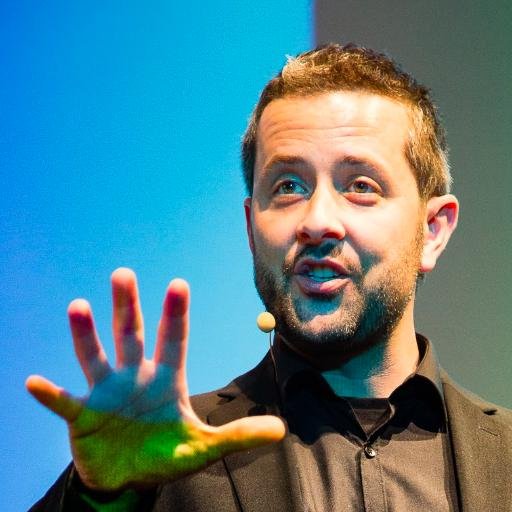While mediocre people are dime a dozen, good people are always in demand. But good optimizers are in very high demand, everyone and their mother is trying to hire one. Alas they can be hard to find. If you’re looking to hire one, what should you look for? What makes an optimizer a great optimizer?
There are many universal traits that make anyone a “good hire” – like being proactive, hard working and so on – but what’s unique about optimizers?
Great optimizers think in terms of processes, and not copy-paste tactics. If those blog posts with “a checklist of 100 things to increase conversions” really would be all that are needed, we wouldn’t need optimizers. But – the world is more complicated than that, and we do need optimizers.
I know many fantastic optimizers. Here are a few observations I’ve made about them.
Table of contents
- #1 Great optimizers are polymaths
- #2 They have critical thinking, a knack for asking the right questions
- #3 They (try to) understand human behavior
- #4 They’re a friend of numbers
- #5 They have persuasive copywriting skills
- #6 They are good with people
- #7 They know good design and user experience
- #8 They have (at least basic) coding skills
- Hard to find?
- Conclusion
#1 Great optimizers are polymaths
You can’t be a good optimizer if you’re not skilled in the art and science of conversion optimization. But what is that really?
We take a website, and make it sell better. That’s the essence, right?
But how do you do it?
It’s not about following a checklist from a blog post, that’s not how great people operate. So what is needed?
A lot. Optimizers have to be multi-disciplinary, and very good at at least 2-3 disciplines (and good enough at others). Optimizers don’t have the luxury of just being copywriting wizards or analytics ninjas – have to be both and then some. They need to be curious and always learning more stuff.
There is no other way really – as all of those things are needed to boost a performance of a website. Sure you *could* have a whole team – but more people adds more complexity as well as cost.
So in essence – great optimizers are polymaths. Optimizers come from all walks of life: IT, design/UX, analytics, marketing, translation, photography etc.
My bachelor’s degree is in IT, my first job out of college was a programmer, then I did sales and marketing for many years, run an SEO company and a SaaS business. I’m a polymath too.
#2 They have critical thinking, a knack for asking the right questions
The world is not simple, yet it’s natural for people to oversimplify everything. Optimizers have to be better than that. There is no “people always prefer” or “who would ever”. A good optimizer knows that the world is not the way she sees the world, and that .
When you’re doing conversion work, you need to have the right mindset: there are no absolute truths. Conversion optimizers should have no dogmas. There is no “this always works”. What’s working for one website, does not necessarily work for the other.
So every optimization case starts with asking the right questions (lots of ‘whys’). Asking the right questions will help the optimizer find the right test hypotheses.
- What’s the context? Who is deciding over what? Who all are involved?
- What does the purchasing process and cycle look like?
- Why are people doing what they’re doing on the product page? Is it what they want to do, or is it because of the way the layout is designed?
- What matters to them when shopping for paper shredding services?
- Which emotional triggers matter here?
- Is it cause or correlation? Or random?
Critical thinking and asking the right questions is very difficult to teach, and takes a while to sink in. But it all starts with questioning everything, wanting to see proof for each claim.
#3 They (try to) understand human behavior
Doesn’t matter if it’s B2B or B2C, ecommerce or SaaS, we’re deadling with (irrational, emotional) human beings.
Humans don’t come with an operating manual, but we do have some scientific research and frameworks we can rely on to help us in our optimization work.
Optimizers need to
- understand how people work , so they’d know how to influence their behavior,
- have an idea how people generally view and use websites,
- know what can persuade somebody to take action,
- be up to date with the latest neuromarketing and persuasion research,
- be familiar with a variety of psychological triggers and effect one might use in the right context,
- understand cognitive biases and how it might affect our judgement,
- know what are System 1 and System 2, and how to go about them.
#4 They’re a friend of numbers
A lot of people think that numbers are not sexy, and are even afraid of analytics. But you don’t have to be a total math nerd in order to be a friend of numbers.
A good optimizer is not afraid of numbers, data or analytics. Since quantified data tells us what’s going on, and how likely is X or Y, an optimizer needs to
- have a good command of one or more analytics tools – and know what to look for,
- be able to check what people are doing or not doing on a website, page by page,
- know how to identify where a website is leaking money,
- be able to turn quantified data into insights.
When interviewing potential hires, my friend Craig Sullivan likes to ask them for a replay of activity (favorite, regularly used reports) to see if they can articulate their patterns. It’s intended to separate ‘those who pretend to do stuff in Google Analytics’ from those who can recall in a non-theory way. What he’s looking for is critical thinking/drilling/curiousity/segmentation – it’s not an exact rundown.
In addition to analytics, an optimizer needs to have good command of statistics. They have to know enough to understand statistical significance and statistical power, probability, the importance of sample sizes and the representativeness of the samples, understand data pollution and so on.
Running A/B tests is no monkey business, you need to know what you’re doing to ensure validity of your results.
#5 They have persuasive copywriting skills
Are you we-we’ing all over your copy? Or are you able to write copy that articulates value in a user-centric way while making the text interesting to read?
Good copywriting is very important for high conversions, and an optimizer needs to know her way around. Not everyone’s a writer, and words don’t come easy for everyone. That’s okay. Writing good copy can be outsourced to better wordsmiths, but you need to be able to tell the difference between good copy and bad copy, and be able to articulate it.
Shitty copywriters are everywhere – I know since I’ve hired many. You don’t need to know how to lay eggs, but you need to be able to tell when an egg is rotten. So when you hire one, you have to be able to review and critique the outcome.
Analyzing copy has a degree of subjectivity to it, but you can also have a highly structured way of analyzing and improving copy. Great optimizers have a process for copy analysis, and are able to pinpoint what’s missing/bad and suggest better alternatives.
And of course, good optimizers always rely on qualitative research (and swiping) to base their copy on.
#6 They are good with people
While optimizers sound like nerds (which they kind of are), I’ve never actually met a great optimizer who was shy, timid and full-on introvert, quietly chipping away at the corner of an office (or maybe there some that I haven’t met!).
In my experience it’s quite the opposite actually. They’re typically very articulate, confident and vocally curious people, asking a lot of questions. They’re ambitious and like winning.
And most of all – they are good with people. They make good conversation partners, they are able to think on their feet, and call bullshit when they hear it.
If the optimizer is working for an agency (with clients), good people skills are even more important. You need to be able to explain what you’re doing, explain what’s going on, fend off stupid ideas, have the ability to say no and get the right action done when the client doesn’t want to do it. Consulting is a lot about education, and shaping the thinking of people involved.
If the results are not there yet, but you have a great relationship with your client – that will buy you some time before you get fired. Enough time to get the results you were hired to get. On the other hand, if they don’t like you very much, you’ll get fired fast.
#7 They know good design and user experience
A critical skill an optimizer has is the ability to tell good design apart from bad design, and be able to articulate the difference. Anyone can say “this sucks”. What specifically? What would be better and why? What does the data say? How are users currently using it? What kind of problems do they run into? Optimizers need to be able to dissect, analyze and test designs.
User experience matters a lot. More than most people realize. A great optimizer is always asking “how can we improve the experience here?”.
Sometimes optimizers have to be part of data-driven redesign projects, and thus need to work with visual designers to ensure meeting business objectives. They need to have a library of best case practices (knowledge of what tends to typically work better) stored in their brain.
#8 They have (at least basic) coding skills
Optimization involves running tests. Setting up A/B tests that are involve more than just changing button copy, need basic coding skills – javascript/jquery. Optimizers need to have a level of command of html/css, and know their way around browser consoles to troubleshoot stuff.
Sure you can outsource all that to test developers, but good optimizers focus on the speed of implementation, and can get stuff done themselves, fast. Great optimizers know that time waiting until someone else sets the test up, is time wasted.
Hard to find?
So… it seems like great optimizers have to be really good at many disciplines. It’s hard enough to find people that are great at one thing. So finding optimizers must be very hard right? Yup, can’t deny that.
Here’s what my peers are saying about hiring optimizers:

Chris Goward, Widerfunnel
Conversion Optimization is a cross-disciplinary role. It’s not easy to find people with the right skill set and experience. A great Conversion Strategist must possess a high-level understanding of marketing, UX, design for conversion, and psychology.
He or she also needs to be curious, continuously learning, humble and competitive. At and agency like WiderFunnel, this role also requires the ability to build and manage client relationships while delivering significant business value for our clients and be a fun person to work with. They’re rare birds!

Karl Blanks, Conversion Rate Experts
Great CROs are hard to find—maybe because the skill set is so broad. The person needs to be great at usability, psychology, persuasive copywriting, business strategy and direct marketing skills. They need to be winners—people who have a track record of significantly growing businesses. They need to have an entrepreneurial spirit, plus the consultancy skills and toughness to deal with demanding clients. They need to be confident enough to drive a business, yet humble enough to invite and internalize negative feedback.
Looking at that list, it’s a wonder that anyone can do it.

Brian Massey, Conversion Sciences
Great website optimizers can be found in the most unusual of places, because they are currently among the most unusual of individuals. Great website optimizers did not go to school for optimization. They are grown, not found. They can be found in libraries and in psychology schools. They tend bees, arrange flowers, and any other number of hobbies that involve visual differential analysis.
Don’t be discouraged. They will have telling superpowers that you can use to find them. They will have heighted skills at Excel, programming or statsitics. They may have constructed castles in data as a search optimizer, online ad manager or horse track odds maker. They will have done this because they love it. They are well-liked and usually not seen as the science geeks they are, or will become. When they arrive for an interview, you will see it in their eyes. They have found their Fortress of Solitude. We are looking for our next Conversion Scientist. Are you an optimization superhero?

Craig Sullivan, Optimal Visit
I’m always trying to hire people way that are way better than I am, at least with one discipline, if not more. And what I look for is not superficial experience like tool usage, but their Critical Thinking skills.
And at the very core of their being should be Bravery, Curiosity, Determination, Commercial Acumen and a deep sense of Empathy with customers. You can demonstrate that you’re very talented, passionate and numerate yet without these core skills, they’re superficial by comparison.
Conclusion
This is what describes great optimizers:
- They have multi-disciplinary skills: design, UX, psychology, analytics, statistics, copywriting, marketing.
- They are good with people, able to articulate well and show empathy
- They have certain personality traits: confidence, passion, curiosity, self-drive, business acumen
Think you have what it takes, and want to be an in-demand optimizer? Join my conversion coaching program (starting March 15th) and become a great optimizatio pro.
Featured image credit







Very nice post. Good info, will help me in my learning process.
I am only good in web performance optimizing, Critical Path CSS, unCSS and all the optimization stuff… I need to learn more about conversion optimizing.
Cool blog, like the information here.
Cool. I chose the right path. I should be good at this then cause you just described me to a T. So, Peep, I’m counting on you at Conversion XL Live and your course to turn me into a kick-ass CRO! If I fail, I only have you to blame. ;)
A woman is walking, and comes to a fork in the road. “Which road will take me to the Golden City?”, she asks a man sitting there. “A road doesn’t take you anywhere, you have to walk yourself.”
No way! I’m not walking! I’m flying to Austin! Can’t wait. See you there. :)
Hey Peep,
Do you have any advise for a junior CRO consultant? Having read this article I believe I have what it takes to make this a full time career. But finding the right opening seems to be difficult, even though I have a great track record and experience of using the major tools in the industry. :-\
You get better by doing. Offer services fee / at low cost to get more experience. So optimize more, and talk to people who’ve been doing it longer than you have. And check out http://www.peeplaja.com
CRO is the future (well; it’s right now too) :-)
Great information to have. Not only can this article help people to become great optimization people, but it can help people who are looking for great optimization people decide how to pick someone who will help grow their website and not end up with wasting money on incompetent or even average people.
I would say that is highly accurate!
Spot on. An employee with all these qualities guarantees nothing but success. I find No 3 the most appropriate.
this stuff cant just be taught also
gotta be lived.
not a part time job type of thing